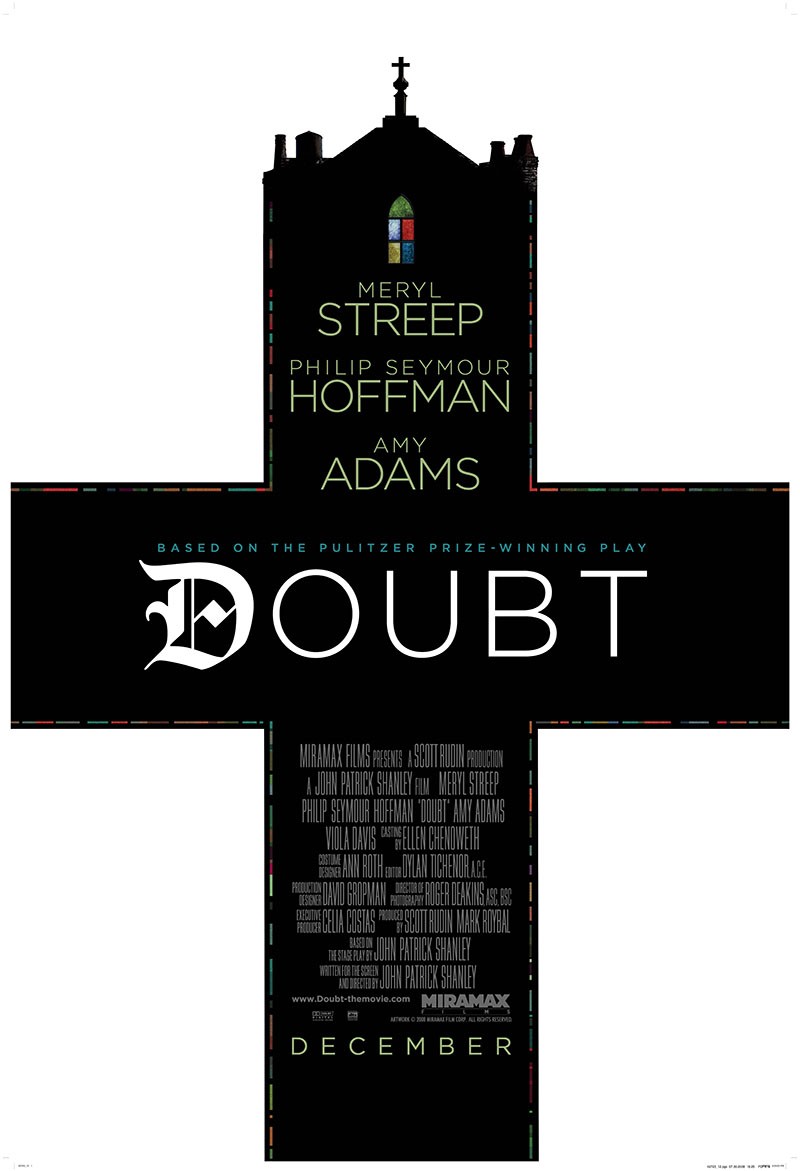One of the best things about a great film is when easy answers are not supplied and viewers are left to wrestle with things long after the film is done. One such film is John Patrick Shanley’s adaptation of his own Tony and Pulitzer Prize-winning play, “Doubt.”
Set in the Bronx in 1964, the story begins on a Sunday morning. The film opens with the process an Irish Catholic community goes through every week, culminating with a sermon at St. Nicholas by their priest, Father Brendan Flynn (Philip Seymour Hoffman). This is a different type of sermon. Flynn talks about doubt and certainty and how both are bonds that are equally strong and destructive.
During the rest of the week, St. Nicholas is an elementary and middle parochial school, where we are introduced to a kind young nun, Sister James (Amy Adams), and the strict, stubborn mother superior and principal of the school, Sister Aloysius (Meryl Streep).
Conflict arises in the parish when Flynn takes an inappropriate interest in a new young black boy, Donald Muller (Joseph Foster). When Flynn calls him into the rectory, James tells Aloysius out of concern. A bombastic conflict ensues between two immovable forces: Aloysius, who wants to bring down Flynn, and Flynn, who protests the charges and seeks to blame Aloysius for holding the parish in the dark ages. Meanwhile, James is caught hopelessly in between.
This film works on every level, with especially strong acting and writing. Hoffman embodies so much that you want in religious faith: a committed man who is open to change and to kindness with grace. Streep truly seems to dig her teeth into her role as well, portraying all that is scary about nuns and Catholicism; she follows the rules to such an extent, it is frightening. Adams captures a kind and innocent character who is incredibly genuine with no hint of insincerity. The two leads definitely hold their own, and with great writing behind them, the audience jumps back and forth, sometimes seeing eye to eye with one character, then the other. A grand tension runs so strongly throughout the film that the writing builds and the actors carry the tension through every frame.
Shanley’s direction is perfect. He elicits exceptional performances out of all the players involved and truly makes an engaging film from start to finish. Even though he has recently focused on theater work and hasn’t written or directed film in about 20 years, he shows that he can still use lighting and staging to make a deep and suspenseful film.
Unlike most standard Hollywood pictures, this film keeps you guessing and doesn’t supply easy answers, even up to the very end. This is one of the many reasons “Doubt” is easily one of the best films of the year and one of the best films about a clash of faith. This film is timeless, as it contains more than the implications of sexual abuse; “Doubt” is about whether we can be certain of anything.
The film aptly explores the line between certainty and doubt, a struggle that applies to any facet of time in history. This aspect of timelessness is one of the reasons a film like this is so important and so award-worthy. “Doubt” is a film for everyone to see, discuss and celebrate, regardless of philosophical or religious beliefs. It is cinema at its finest.







